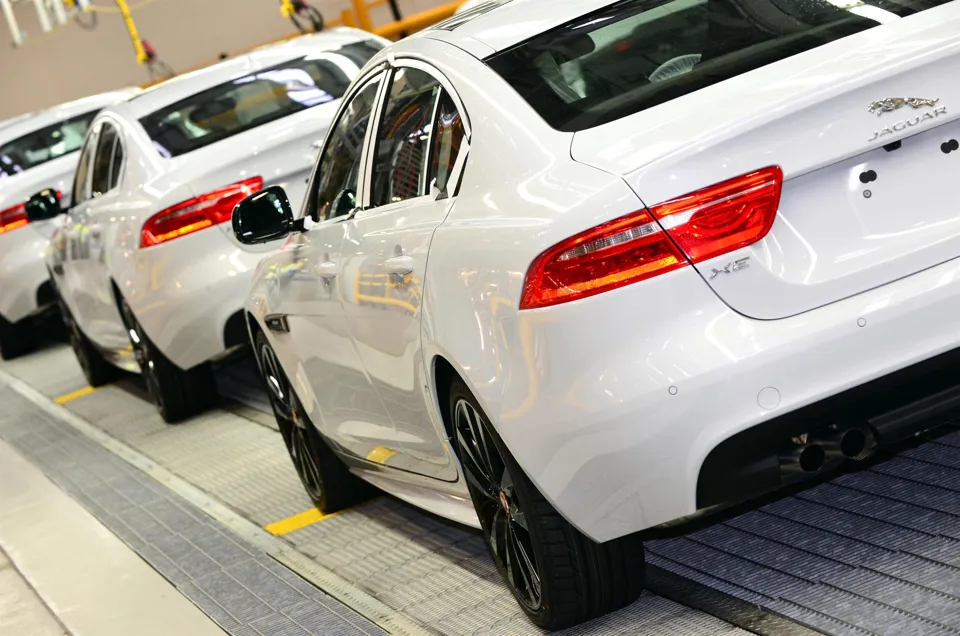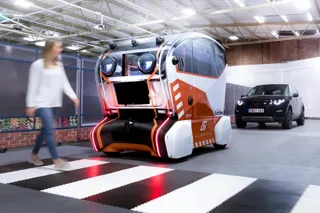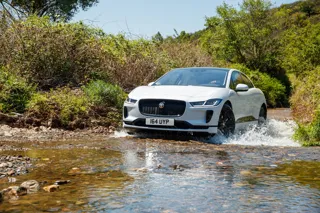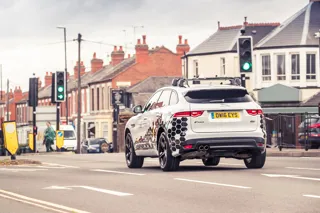Jaguar Land Rover (JLR) will reveal its new fleet strategy early next year as it acknowledges challenges in the market that have led it to focus on retail customers.
Land Rover’s fleet sales, not including Motability and captives, were 17.6% down after the first three quarters of 2018, with 19,661 units registered, compared with 23,873 for the same period last year.
Private registrations for the brand were also down, but not by so much, with 31,534 cars registered by the end of quarter three, compared with 34,835 last year, a 9.5% decline.
The difference between fleet and private registrations was even more pronounced with Jaguar.
It reported 10,526 registrations to fleet, not including Motability and captives, by the end of Q3 2018. That compared to 13,206 units for the same period last year, a 20.3% fall.
Private registrations for Jaguar actually increased year-on-year by 22.6%, with 13,104 units registered compared to 10,692, last year.
Rawdon Glover, JLR UK managing director, told Fleet News: “Our year-on-year performance in the fleet market is down and some of that is due to the uncertainty in the market around the Worldwide harmonised Light vehicles Test Procedure (WLTP) and customers holding off making buying decisions, something that has impacted a lot of other manufacturers.”
He explained that the British manufacturer took the decision to focus on retail where there is “more buying confidence”.
Also, drivers are opting out of taking a traditional company car and acting like retail customers in greater numbers, he said.
The model range has also proved problematic. Glover explained: “It’s no secret we don’t have a hybrid in the XE and XF ranges, making it very difficult to be competitive in these segments from a benefit-in-kind (BIK) point of view. So, some of our challenges aren’t conscious choices, but down to powertrains we have available and decisions made some time ago.”
However, he said: “While we were probably right to lose volume in those markets – we can’t continue this retail focus for more than the short-term.”
He told Fleet News he was working with Jon Wackett, JLR’s general manager of fleet and business sales, to re-appraise the fleet market, break it down into segments and then decide where they want to target.
“Plans should be finalised in about a month’s time,” he said.
“We might want to get into affinity and opt-out schemes where drivers behave like retail customers, win Government contracts – where you’d think buying British in the current climate would be important – and with only two hybrids, the Range Rover and Range Rover Sport, we’re going to have to be really intelligent and targeted.
“When the time comes, when we have a range of low CO2 vehicles, we will sustain the volume we have and build on it. That’s our focus for the next 12 to 18 months.”
Some manufacturers have been struggling to fulfil orders due to the need to retest vehicles to meet the WLTP. But, that was not the case with JLR.
“We’ve been largely unaffected by WLTP,” said Glover. “The only recent two models that needed to be certified under the new regime were the plug-in hybrids in Range Rover and Range Rover Sport in mid-October, causing a delay in deliveries of around six weeks.”
Rawdon was speaking at the UK unveiling of the 2019 Evoque, due on the market in April.
The 2019 Evoque is notable in the fleet market for the addition in the range of, initially, a mild-hybrid electric engine (taking energy lost during deceleration storing it in an underfloor lithium battery), followed up this time next year with the addition of a plug-in hybrid (PHEV).
The mild-hybrid engine has fuel consumption figures of up to 50.4mpg and CO2 emissions from 149g/km. And, although performance figures for the PHEV won’t be available for about six months, Glover claimed “it will be the game-changer in 12 months’ time for those fleets that are CO2 emissions focused”.
The delay in bringing the plug-in to market is down to a desire to start small and build the range gradually as production increases to meet demand, and the practical needs in putting the first PHEV in the Evoque range on a new vehicle platform.
Glover does not believe fleet customers will hold off buying the new model until the PHEV is launched, however.























The Engineer - 19/12/2018 09:36
Models like the Velar are very pretty, but not really needed urgently, the E-Pace is a bit of an untenable fudge. It would be better if the development cost/staffing of these had been spent on other project more urgent, cleaner engines and lighter chassis. Sad truth is there are few JLR products that I could justify both the high cost and the high tax on. Bolt on low key hybridisation is just a small sticking plaster, they need to look at what Honda and Toyota are achieving with more committed projects.